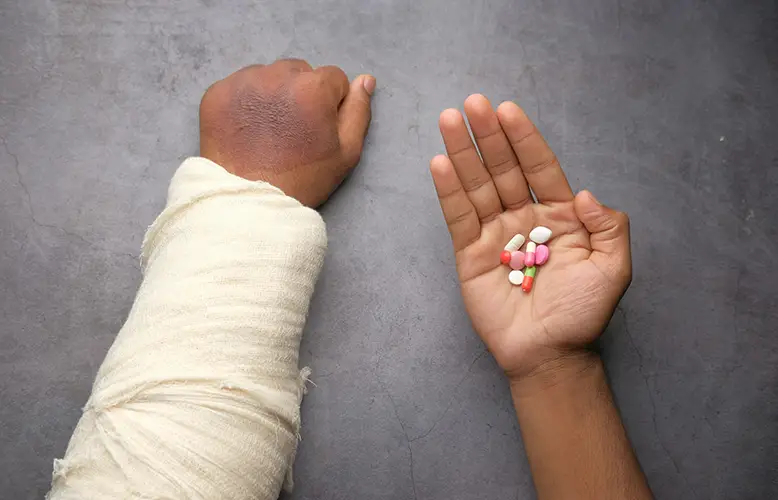Accidents happen, especially when we are exploring new and unfamiliar places. While traveling can be an exhilarating and eye-opening experience, it also comes with its own set of risks. From minor mishaps to major emergencies, being prepared for unexpected accidents while on the road is a must. But how should you handle such situations? What actions can prevent a simple accident from turning into a travel nightmare? Read on to find out.

Dos
When handling accidents while traveling, having a plan and knowing the right steps to take can make a significant difference. Here are some dos that can help you manage an accident effectively and ensure your safety, as well as the safety of others.
Consult a Specialized Lawyer
In the event of an accident, one of the first steps you should take is to consult a specialized personal injury lawyer. Professionals like ltlaw have the expertise to guide you through the legal intricacies related to your accident, ensuring you get the compensation you deserve. A personal injury lawyer can help you understand your rights, gather necessary evidence, and interact with insurance companies on your behalf so that the entire process is smoother and less stressful.
Stay Calm
Panic can cloud your judgment and lead to poor decision-making. In such a situation, Take deep breaths and assess the situation. Check yourself and others for injuries and call for medical assistance if needed. Staying composed will help you think clearly and act efficiently, ensuring that you take the necessary steps for everyone’s safety. A calm demeanor can also provide comfort and reassurance to those around you.
Call for Help
Whether you are involved in a car accident, get injured while hiking, or encounter any other type of emergency, calling for help should be your top priority. Contact the local authorities, such as the police or an ambulance service, and let them know about the situation. If you are unable to make a call yourself, ask someone nearby for assistance.
Follow Local Laws and Guidelines
In a panic, people often tend to act impulsively and disregard local laws and guidelines. However, you must remember that you are a guest in another country or city and should follow their rules and regulations. This will be especially helpful if you need to seek medical assistance or file any legal claims.
Document the Incident
Take detailed notes about the accident, including the date, time, and location, as well as any other relevant circumstances. If possible, take photographs and videos of the scene and any visible injuries. Gather contact information from any witnesses and keep a record of any interactions with local authorities. This documentation can be invaluable when filing insurance claims, seeking legal advice, or explaining the incident if any disputes arise. Proper documentation ensures you have accurate information to support your case.
Notify Your Insurance Company
If you have travel insurance, you must notify your insurance company as soon as possible after an accident. They can guide you through the process and inform you of any coverage or reimbursement options available. Be sure to provide them with all the necessary documentation and information so that your claim can be processed promptly.
Don’ts
While there are essential steps you should take in case of an accident while traveling, certain actions can do more harm than good. Here are some don’ts that you must avoid at all costs.
Don’t Leave the Scene
No matter how minor the accident may seem, never leave the scene without taking proper measures. Stay until the authorities arrive and provide them with all the necessary information and documentation. Leaving the scene of an accident can have severe legal consequences, and it also prevents you from obtaining important evidence to support your case.
Don’t Admit Fault
While it might be tempting to apologize or admit fault at the scene of an accident, doing so can have negative legal ramifications. Simple statements like “I’m sorry” can be misconstrued as an admission of liability. Instead, focus on documenting the incident thoroughly and discussing the details with a legal professional who can provide appropriate advice. Limit your interactions to exchanging essential information with other involved parties, and let the authorities determine responsibility based on the evidence.
Don’t Neglect Your Health
Even if you feel fine right after the accident, do not neglect your health. Some injuries might not be immediately apparent and could manifest later. Seek medical attention as soon as possible to rule out any hidden injuries and get a thorough evaluation. Ignoring potential health issues can lead to complications down the road and might also weaken any legal claims related to your health. Prioritizing your health ensures that you receive proper care and maintain a strong case if disputes arise.
Don’t Discuss the Incident Publicly
In the age of social media, it can be tempting to share details of your accident online. However, discussing the incident publicly can have unforeseen consequences, including influencing legal proceedings and complicating insurance claims. Statements made on social media can be misconstrued, taken out of context, or used against you in court. To protect your interests, refrain from posting about the accident and keep the details between you, your legal advisor, and your insurance company. This discretion will ensure that your case is handled professionally and without unnecessary complications.
Don’t Neglect Follow Up
After the initial steps are taken, it’s crucial to follow up on any medical treatments, insurance claims, or legal proceedings related to the accident. Regularly check in with healthcare providers to ensure you’re recovering properly, and stay in touch with your insurance company and lawyer to keep track of your claim’s progress. Following up ensures that no details are overlooked and that you receive the necessary support and compensation in a timely manner.

Accidents while traveling can be quite frustrating, but being prepared and knowing how to respond can make a world of difference. By following the dos, such as staying calm, seeking help, and documenting the incident, you can ensure your safety and protect your rights. Equally important are the don’ts, like avoiding the temptation to discuss the incident publicly and not neglecting to follow up on necessary treatments and claims.
Know that preparation and composed action are your best allies in turning a potentially distressing situation into a manageable one. Stay vigilant, informed, and proactive to enjoy your travels with peace of mind, knowing you’re ready for the unexpected.





